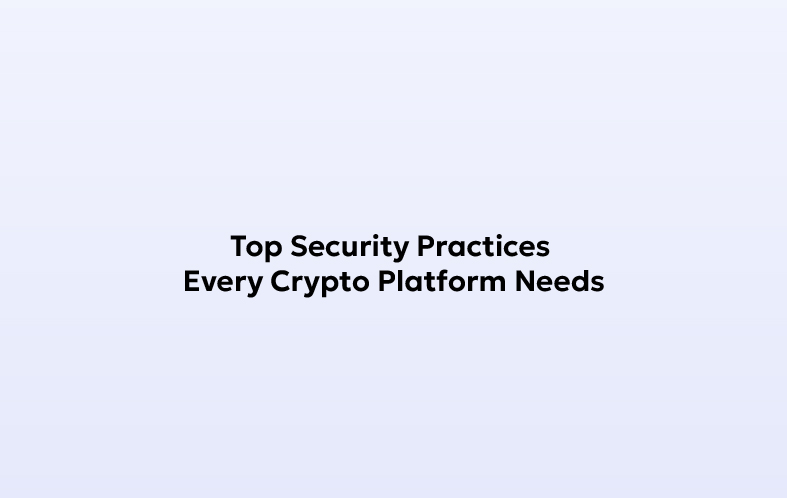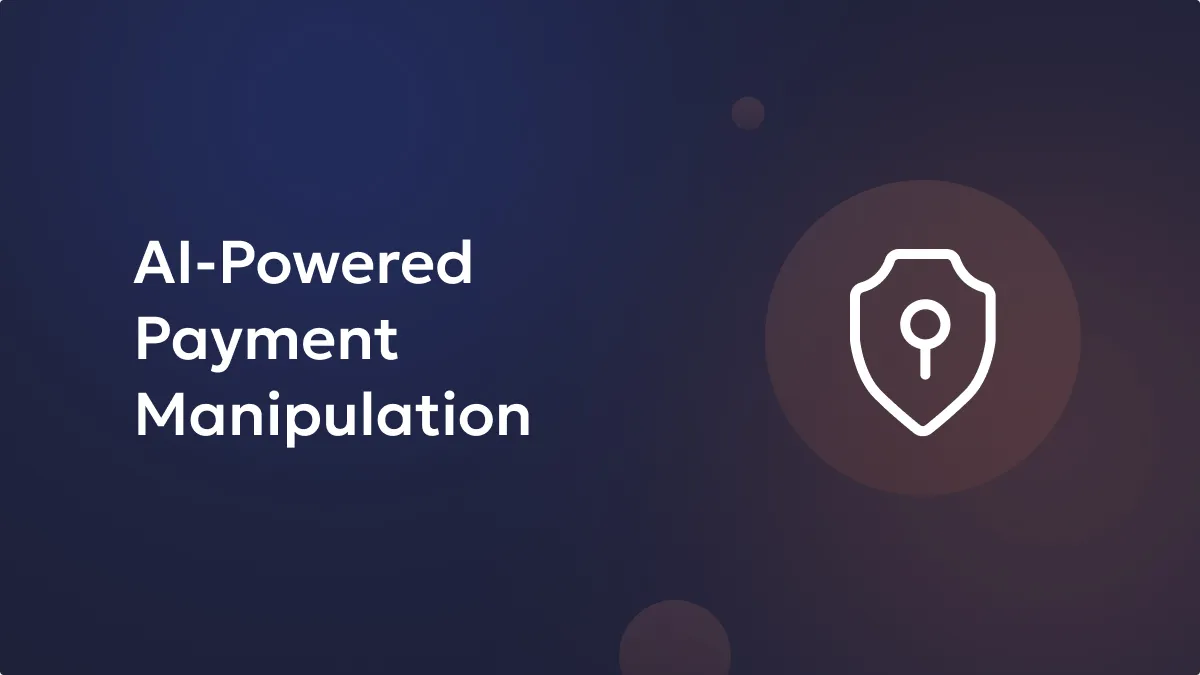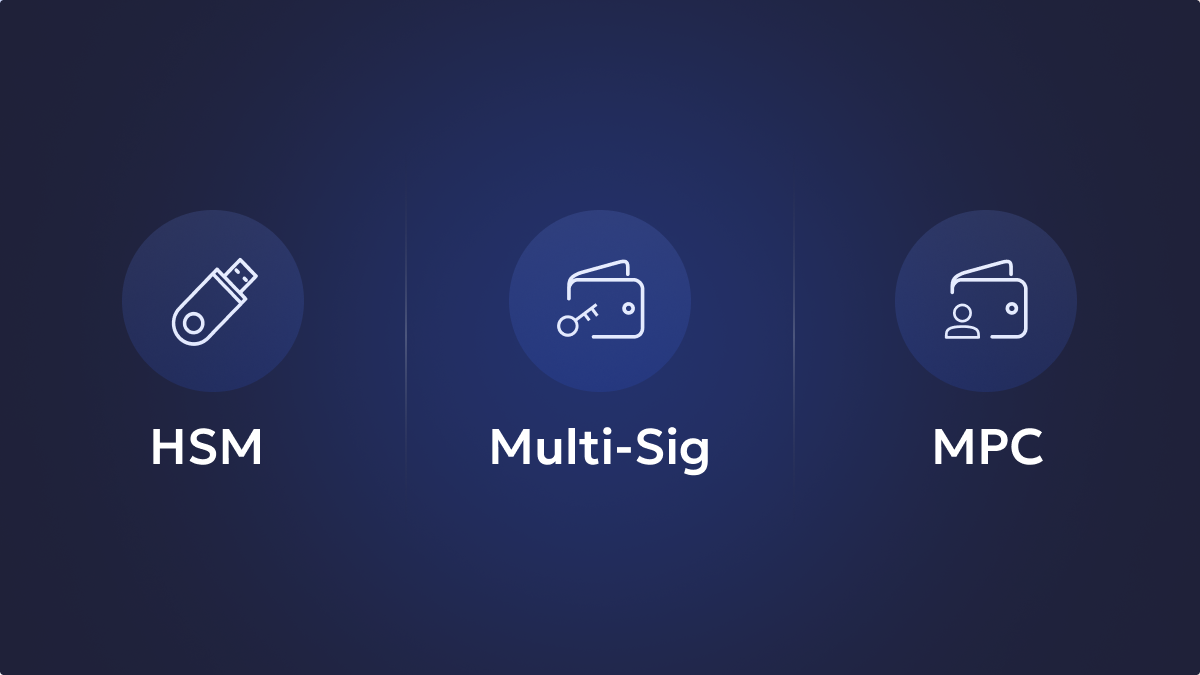Each year, crypto assets worth millions of dollars are stolen from various crypto platforms, and the number of attempts continues to increase daily. When successful, these attacks pose a significant risk to crypto platform security and their users, leading to huge losses. The extent of losses could range from a small amount that could be easily replenished to large amounts that could easily drive a large-scale crypto enterprise to bankruptcy, with users losing almost all the funds stored on these platforms.
The increase in crypto-related crime has brought increased awareness about cybersecurity measures and good operating practices. Adhering to these practices minimizes the risk of losses to cyberattacks to a minimum, effectively safeguarding crypto platform security and the funds held within. Most crypto platforms are actively implementing these safety measures and keeping them updated to counter evolving threats.
After all, platforms have a huge responsibility in safeguarding user assets in their custody; if they falter, their reputation and business are at stake.
Unlock the potential of digital assets for your institution
Why are Crypto Platforms at the Risk of Losing Funds?
Increasing cryptocurrency adoption and the rising number of projects catering to the demand have presented cybercriminals with plenty of options to steal from. Thefts and scams leading to huge losses are possible because of vulnerabilities arising from the platform’s crypto storage infrastructure and practices, software, and more.
1. Improper Storage Practices
Safe storage of crypto assets depends on the infrastructure used to secure the private keys of the platform’s wallets. Hot wallets, responsible for enabling quick crypto transfers between users and the platform, are more vulnerable than cold wallets, as the private keys always remain online. Proving the point, many high-profile hacks in the past led to the theft of millions, if not billions of dollars worth, in crypto assets, due to cybercriminals targeting the hot wallets of crypto platforms.
2. Untested Platform Software
Software bugs are among the most exploited vulnerabilities on platforms that handle crypto assets. By exploiting bugs present in the platform’s code, cybercriminals are likely to gain access to user account data, hot wallet keys, and other sensitive information, allowing them to access funds belonging to the users and the platform.
Decentralized finance like DEXs also suffer from bugs in smart contract that cybercriminals exploit. Attacking such bugs can steal the assets stored in these contracts and the ones in transit due to contract execution.
Secure and manage your digital assets with Liminal
3. Phishing Attacks
Phishing attacks are social engineering methods that allow scammers to access sensitive information by tricking platform employees and CXOs. Platforms that are highly secure in every other aspect like their software and storage, are still prone to losing their funds to such attacks. In such situations, the scammer attacks the weakest link – the human being who has access to the enterprise funds and siphons it away to a different wallet.
Security Practices Platforms Follow to Keep Vulnerabilities at Bay
To safeguard crypto assets as well as their users’ private and confidential information, most crypto platforms incorporate a variety of security protocols in combination with best operational practices. When implemented properly, they perform their role in safeguarding the assets as expected. Some of the widely used security practices one should look for in a reliable cryptocurrency platform include:
1. Storing Crypto Assets in an Offline Environment
For secure operations, crypto platforms like exchanges adopt a storage infrastructure with multiple wallet types. It includes a combination of hot and cold wallets, with warm wallets acting as intermediaries between them. The majority of crypto assets in the platform’s custody are stored in cold wallets, with only a small amount summing up to a maximum of 5% of total assets in custody held in hot wallets to meet immediate requirements. Securing funds in cold wallets, whose private keys aren’t directly exposed online under any circumstance, ensures protection from hacking attempts even if they manage to exploit some software vulnerability on the platform itself.
Even in a worst-case scenario, only a portion of funds held in a hot wallet will be at risk, not the entire holdings. The security is further enhanced using multisig and MPC wallets that require multiple authorizations to move assets between and out of wallets. Such a multi-factor authentication mechanism keeps funds secure even if one of the wallet keys is compromised by phishing or some other cyber-attack.
2. Rigorous Software Testing and Audits
Getting platform software tested thoroughly by third-party cybersecurity firms before deploying it goes a long way in preventing attacks that can successfully breach platform security. Crypto platforms offer services like penetration testing and software audits that simulate cyberattacks in real-time and assess risks that expose vulnerabilities—if any—to fix any possible vulnerability that could be exploited by a cybercriminal if left unattended.
3. Encrypting All Lines of Communication
Cryptocurrency platforms need to use email, text messages, and other means of communication to convey sensitive information like OTPs, password reset links, and wallet information to users. Cybercriminals can compromise these lines of communication to access information that can jeopardize user funds. To prevent such a scenario, platforms encrypt all communication with their users with cryptographic algorithms like PGP, which helps avoid issues related to the interception of information in transit.
Better Security Practices Enable Better Business
Security is a critical factor for any financial business, especially the kind that deals with cryptocurrencies where the threat levels are perpetually high. With stringent security protocols and best practices diligently followed, the risk of theft or mismanagement can be avoided to a great extent. By doing so, the platforms will not only protect the interests of their clients but also their own, as it is a question of their reputation and trustworthiness. Users should always do their due diligence to understand the authenticity of any crypto platform, security features, regulatory and legal credentials, and other factors before depositing their crypto assets.






